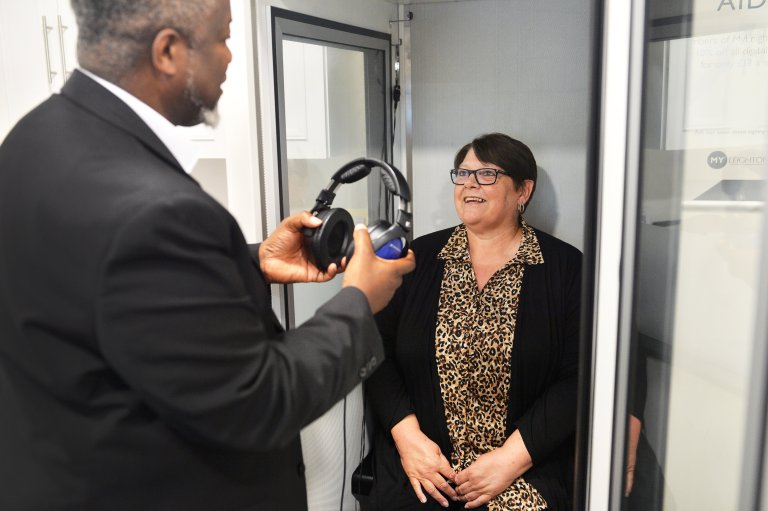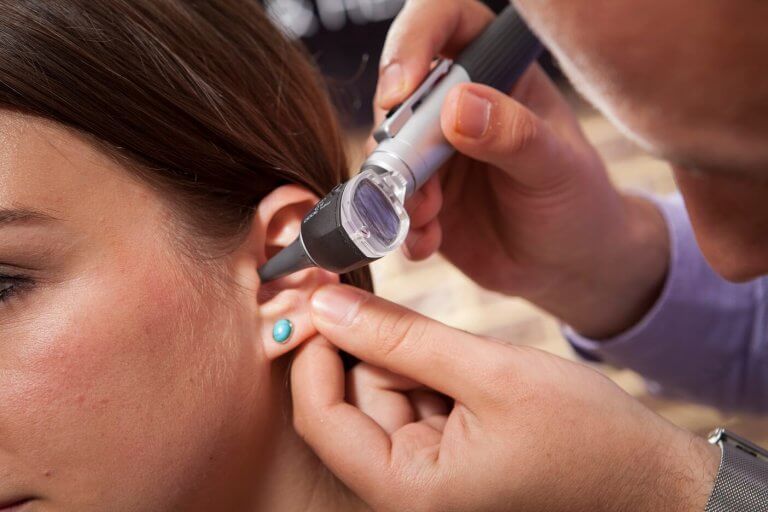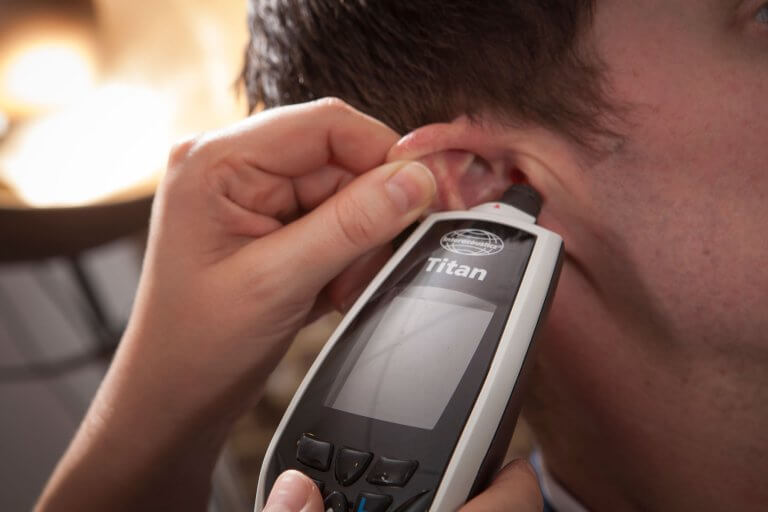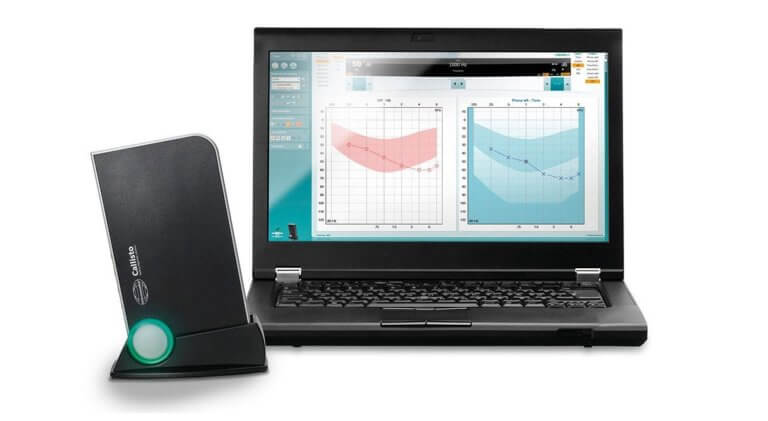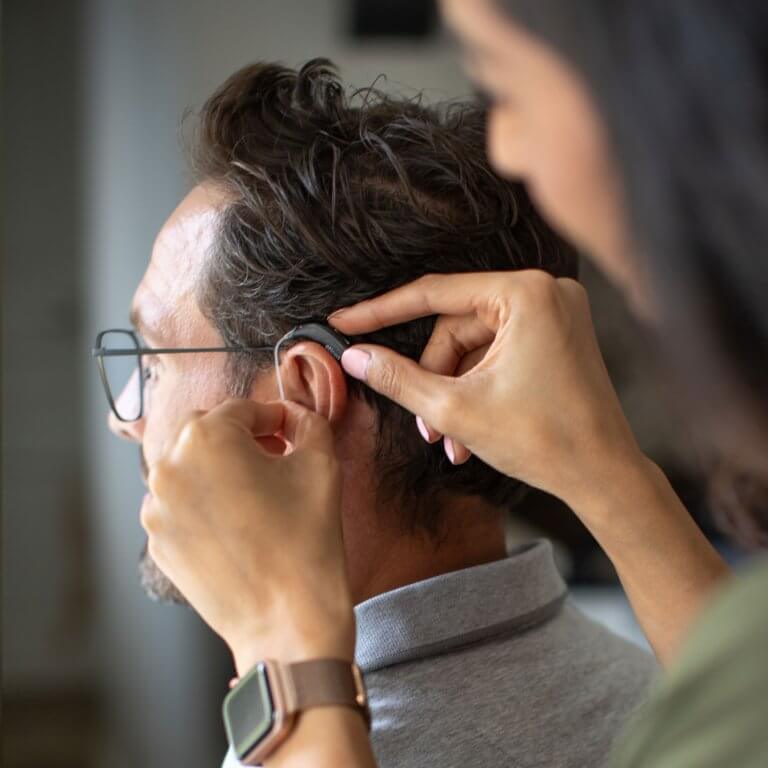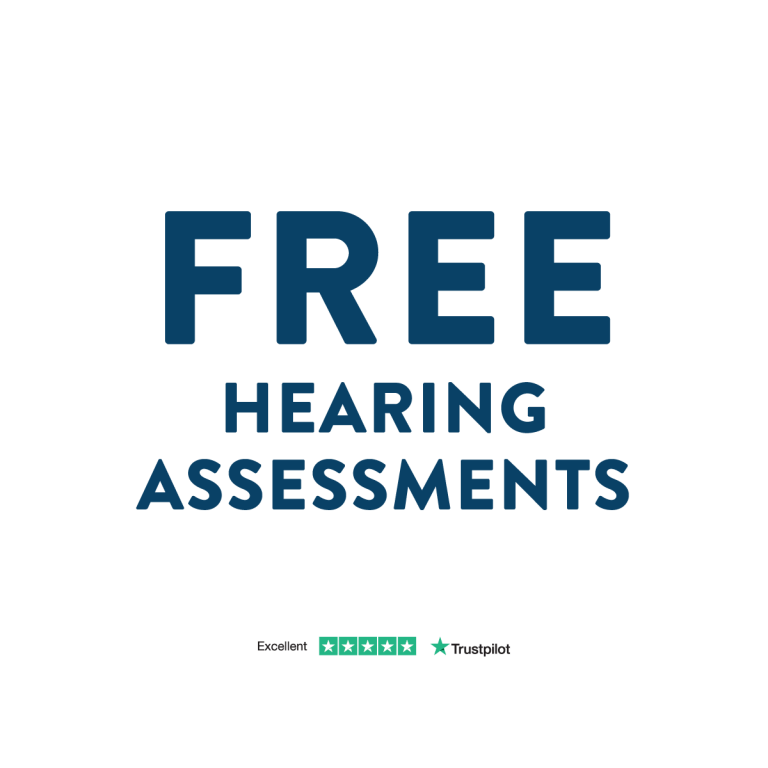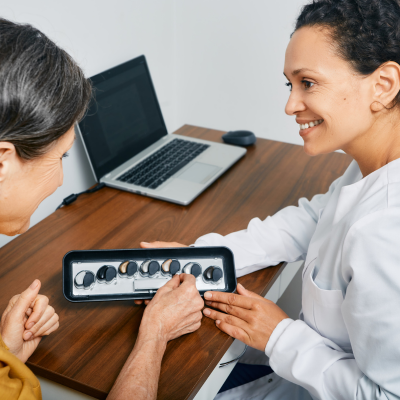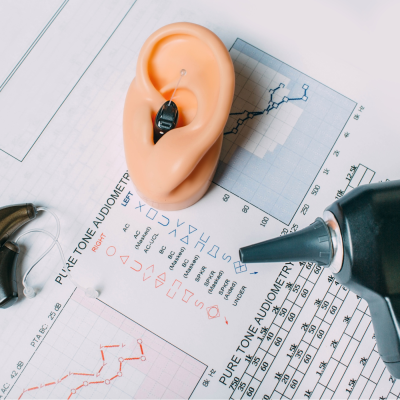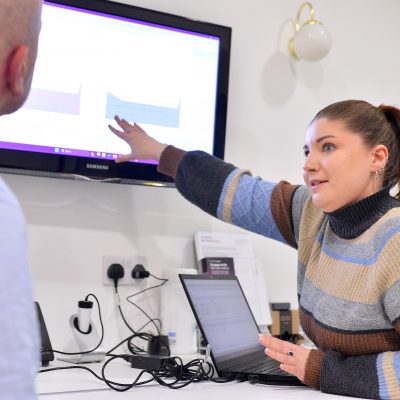If you need them, we will show you our hearing aid options as a part of your free check-up. We offer a 60-day money-back guarantee on all our hearing aids, so you can find out which model best suits your ears.
100% independent
As a truly independent hearing care provider we are not tied to any one manufacturer and will evaluate a range of hearing aids on the market to help choose what is most appropriate for each patient.
Discreet hearing aids
Many people are worried about using hearing devices. But with brilliant new technology offering discreet styles, hearing aids are far less noticeable nowadays.
Find your perfect hearing aid
Explore our range of hearing aids. Our audiologists are on hand to answer your questions – from designs and features to costs and payment plans.



